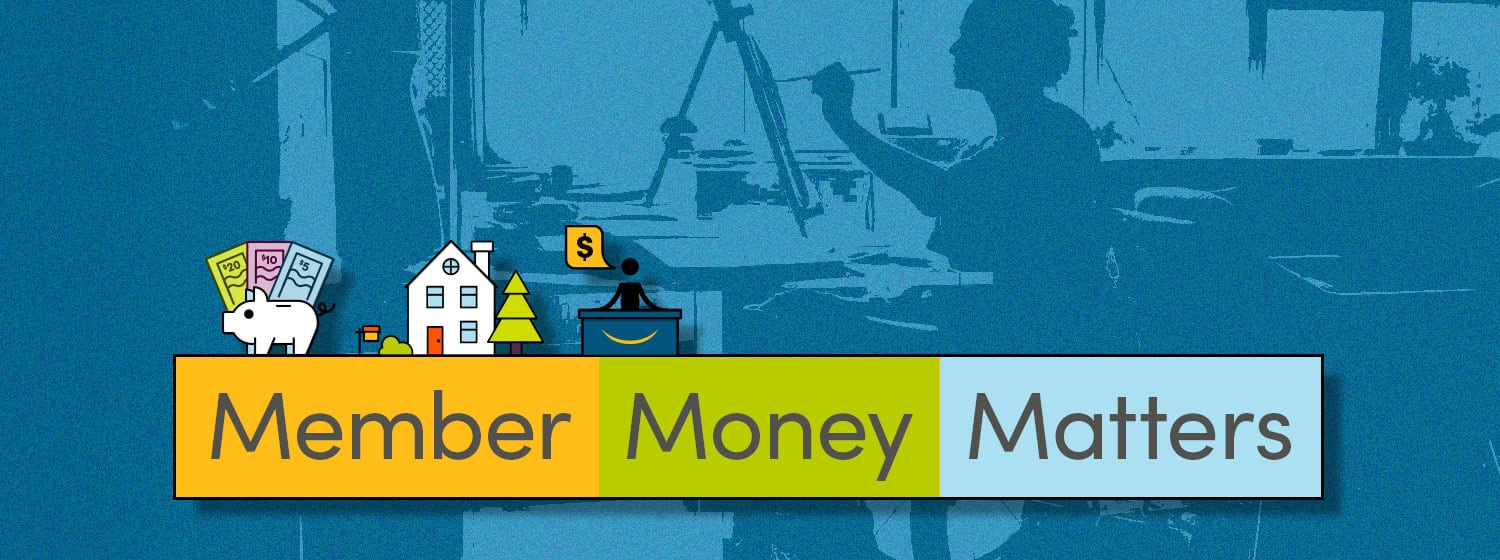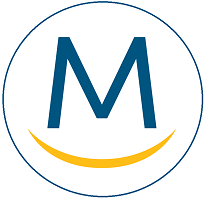
Welcome to Member Money Matters - where we talk money with our community, our Members, and advisors. Conversations like these are essential to learning about your financial wellness, prioritizing your goals, and planning for the future.
Meridian Member: A 51-year-old woman committed to getting out of debt, buying a new home, and planning for the future - while on disability with a limited income.
Contact: Sheraya Sims, Virtual Financial Planner
Life story and goals
Age: 51
Occupation: None, she’s on disability
Location: Midland, Ontario
Dependents: None
Financial goals: Pay off all my debt, and sell my first home of 22 years and buy my second up north on a river.
Expenses
Monthly after tax income: $1130 + $900 CRB (but CRB isn’t permanent)
Housing expenses: $406 mortgage payment
Utilities: $154
Transportation: $0
Staying connected (phone, internet, etc.): $95
Memberships and subscriptions: $0
Life Insurance: $0
Debt payments: $630 outstanding
Net worth: $340,000 owned home
Let’s talk money
What are your financial goals right now?
Long term, I would like to sell my house and buy a home further north, on a river. Short term, I would simply like to keep creditors paid and happy. Overall, I would really like to get back on track and enjoy every day without financial stress.
When did you start learning about money?
In 1990 I had my first real job, and that's when I started learning how to save and plan. My mother and father were very generous and looked after most money requirements, which is why it took until I got my first real job to start really learning about money.
When did you start making a financial plan for the future?
I opened my RRSP in 1990, which was integral in the purchase of my first home - the home I fell in love with in Grade 6 and the house I live in now.
What’s your plan for meeting your goals?
I don’t have one. I think that I struggle the most with deciding where to start when it comes to organizing my finances and creating a plan. I would like to learn about resources or programs I could take advantage of to help learn about financial strategies or, ideally, learn how to leverage what I already have (like my house).
What is your best saving strategy?
Finding entertainment at home, utilizing food banks, using secondhand stores, and making my food at home and eating smart.
What was your latest splurge?
I purchased a toque and a pair of shorts costing $55.
Latest unexpected necessary expense?
Unfortunately, it was vet bills for confirming that my 18-year-old Beagle had a tummy tumor. I was in no position to pay, but I have some angels on my side, so when I did decide what to do, two of the sweetest people paid for these expenses.
Advice from an expert
Sheraya Sims, Virtual Financial Planner, offers advice.
Where to start?
First of all, I would like to commend you! Living on a low, fixed income isn't easy, and to have done so with minimal debt is quite an achievement!
The easiest way to start creating a financial plan is to take stock of where you are now and outline a budget for your monthly expenses. Start by determining your income, fixed costs, and flexible costs. While income and fixed costs are easy to jot down, the flexible costs, like groceries, clothing, and repair bills, can be much more difficult to estimate, and can fluctuate weekly, even monthly. The best way to get a handle on these changing costs is to track them over a period of a few months. There are a few different ways to do this:
- When using cash, keep receipts to review and categorize each week or month.
- When using a debit card, review your statement or online banking transactions.
- When using a credit card, review your statement.
The important part is to write down expenses, or keep track of them on your computer, so that you can add them up over time and figure out an average based on the actual dollars you’ve spent. It’s all about selecting the method that’s right for you, something you use to create good habits.
Once you have a solid idea about where your money is going, it’ll be easier to find areas where you can cut back. You might be surprised!
Have some perspective on splurging and saving
Staying on a budget doesn’t necessarily mean that you can never spend money on something you really want. It’s all about balance. You make some smart choices about expenses, like cooking at home, so that you have a little extra cash around if you really want to meet a friend for lunch on a patio.
One thing to keep in mind, especially when you’re working on saving money, is that there’s no need for you to feel bad about saying no. Deciding not to spend money on something - even if others are telling you “lighten up,” or “you deserve it” - can be a good call when it comes to managing your stress and finances.
Prioritize your debt
If any of your debt is from credit cards, make paying it off a top priority. Credit card interest rates are really high compared to other borrowing options, and the longer you wait, the worse it gets. Plus, getting into the habit of making consistent payments to decrease your debt will make it easier to save once your debt is gone. You can just take the amount you were putting towards your debt and add it to a savings account instead!
Looking ahead
It’s always a good idea to plan for your future income. Take your RDSP, for example. You will need to wait 10 years from your last contribution date before you can start making withdrawals - otherwise, you lose a large portion of it back to the government that helped you build it. People usually start withdrawing at age 60. I recommend speaking to an advisor every year to make sure you’re continuing to build toward your withdrawal date and maximizing your potential future income.
You should also consider the monthly income you can get from the Canada Pension Plan (CPP) and Old Age Security (OAS). Choosing what to take, and when, will depend on your specific needs. Talking to a tax and retirement specialist can help you create a plan that’s right for you. You could also talk to them about the Guaranteed Income Supplement (GIS), which you may qualify for as well.
Expert advice is key. We all have friends and family members with suggestions on how to manage our finances, but some of this can be tricky to navigate if you’re not a professional. Plus, it never hurts to have some support.
Use your equity with care
Your house is your biggest asset, but likely also your biggest expense. Accessing your equity should be approached with caution and - you guessed it - expert advice.
The first thing to consider is your mortgage timeline. Could you pay off your mortgage within 10 years? If so, do it! If not, it may be better to accept that as unachievable and consider your mortgage as the cheapest rent in town.
Also, remember that your mortgage payment amount isn’t locked in forever - changing interest rates can have a big impact. If rates are low and you’re nearing your maturity date, consider asking for a blended mortgage rate, extending your fixed rate of interest back up to 5 years.
When it comes to accessing equity you already have, like your house, you may be thinking about a home equity line of credit. This actually isn’t the first thing I would recommend for people on a fixed income. Here’s why:
- A fixed-payment option, like a loan, is easier to predict and account for in your budget.
- Payments for a line of credit increase the more you use it.
Also, stay away from reverse mortgages. There’s often a lot of talk about this type of mortgage, but I advise against it. It’s a temporary and expensive option that only works in a very limited set of circumstances.
In the end, my biggest piece of advice before withdrawing from your equity is to estimate the added monthly cost. Take that anticipated monthly payment, and for the next few months, set it aside as if you already had the loan. Then ask yourself: are these payments manageable and sustainable?
Some final advice
No matter what your income, there are only so many dollars at the end of each month. I've found that reducing stress and increasing enjoyment from your income is all about being aware of what you have, and being intentional with every dollar spent. Make sure you get the biggest and longest-lasting “happy” from every penny - today, tomorrow, ten, and twenty years from now. What makes you happiest? Only you can decide.
I hope that helps! At Meridian, we’re always happy to dive into more conversations and options to make sure our Members get what they want.
All about Sheraya Sims
Sheraya has been with Meridian for 15 years, starting out as a part-time teller. She enjoys learning how Members prefer to manage their money, discussing their goals, and piecing together the puzzle of products and strategies into a personalized financial plan to achieve them. No one person can be an expert in everything! Sheraya doesn’t have a green thumb or an eye for artistry, but if finance isn't your forte, she’s happy to help!
The advice expressed in the article are for general informational purposes only and are not intended to provide specific advice or recommendations for any individual or on any specific product. It is only intended to provide education about the financial industry. The views reflected in the article are subject to change at any time without notice. Nothing in the article constitutes professional and/or financial advice, nor does any information on the article constitute a comprehensive or complete statement of the matters discussed thereto. To encourage safety, we recommend you to always consult with an advisor before making any decisions related to information on this website.
Share your story
Want to be featured in our Member Money Matters series? Submit your profile
Learn more about your finances
Do a survey to get your Financial Resilience Score
Guide to saving money
Advice for buying your next home or property
